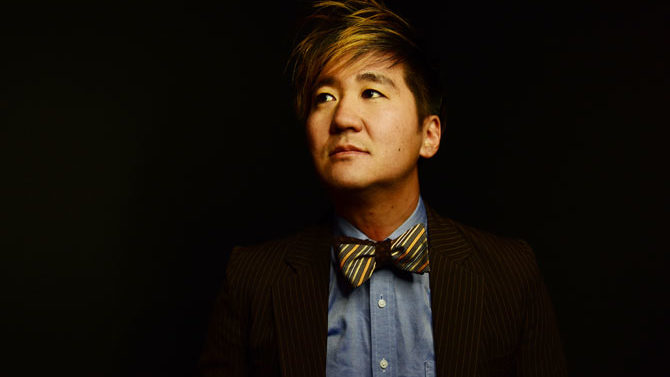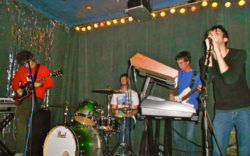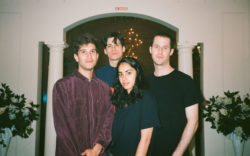Writer’s block is the worst. That sentence alone—those five words, totaling a mere 22 letters—took at least 30 minutes to come up with. No joke. Adequately expressing one’s message in an engaging way is a daunting task, and starting is always the hardest part. But as real and irritating as the creative wall is, it’s still surprising that an individual as creative and talented as Kaoru Ishibashi could fall prey to those same speed bumps.
For those unfamiliar with Ishibashi’s background, the man is nothing short of a phenom. Over the past few years, he has developed quite the CV: a stint playing with of Montreal; his own cadre of recordings under the name Kishi Bashi (including a live album backed by a string quartet); film scoring; commercial sync licensing; and his bread and butter, a jaw-dropping live performance, which typically includes layers of mesmerizing, manipulated vocal and violin loops.
However, for Ishibashi’s most recent album, Sonderlust, it took a little longer for the creative juices to start flowing.
“I was so burnt out last spring after touring,” he says, referring to a stint that included performances with a string section, as well as a separate leg with his standard backing band accompanying pop mainstays Guster. “It was pretty intense.”
So Ishibashi and his family headed to Folly Beach, SC for a breath of fresh air. Naturally, he couldn’t help but fiddle with the instruments stored in the house’s music room. “I tried to kind of do my stuff, and couldn’t really do anything. At all. It was kind of frustrating,” he says with a laugh.
As he struggled to create a record stylistically similar to his past work, Ishibashi began using the recording software Ableton Live. “It allows you to manipulate samples really quickly, so that you can just be very creative with it,” he says. “There are a couple songs that literally started because of these samples.” The album’s opening track, “m’lover,” takes a violin arpeggio and loops it over and over as sampled vocal harmonies, drums and strings propel the ballad to its emotional limits.
With this new approach, a new sound started to develop. “Once I realized this was not going to be an orchestral pop album, it got really easy,” says Ishibashi, who began to let in more of the sounds he’d always gotten excited about—specifically, 1970s soul, funk and rock.
“In the back of my mind, I understood that maybe it’s a good move, because if I made an album kind of frustrated and not too excited about it, I’m sure it would just translate into the music, so I should just go with what I was excited about at the time,” says Ishibashi.
Hints of ELO and Pink Floyd come through on tracks like the Wurlitzer-led slow groove of “Who’d You Kill” and the peppy “Why Don’t You Answer Me,” which finds Ishibashi pushing his voice into territories he only flirted with on previous albums 151a and Lighght. “I’m so far removed from being able to sing like that or write like that, that I also took it upon myself to challenge my singing style,” he says. “For me, it’s really different.”
While new discoveries and experimentation shaped the music of Sonderlust, trials within Ishibashi’s personal life became the record’s lyrical focus.
“My marriage was kind of struggling. It was already always struggling, just because I’m a touring musician,” he says candidly. “Classic story. It definitely gave me a lyrical element. I dove into the music almost like a distraction, and that kind of helped me.”
As he navigated a separation, it became increasingly important for Ishibashi to relate what he was experiencing with his listeners, which is where the title of the album comes into play. Derived from “sonder,” a word created by writer John Koenig and posted on his blog, The Dictionary of Obscure Sorrows—a site dedicated to providing names for the countless, hard-to-define emotions humans experience—“sonderlust” describes the desire to connect with as many strangers as possible, knowing they all experience as complex a life as one’s own.
“I have this kind of worldview where I really feel connected to a lot of strangers, essentially, who listen to my music,” says Ishibashi. “When I make this music, I’m really thinking about them as much as I am myself, about how this would help them or influence them or maybe make their lives a little bit better.”
Like what you just read? Support Flagpole by making a donation today. Every dollar you give helps fund our ongoing mission to provide Athens with quality, independent journalism.










